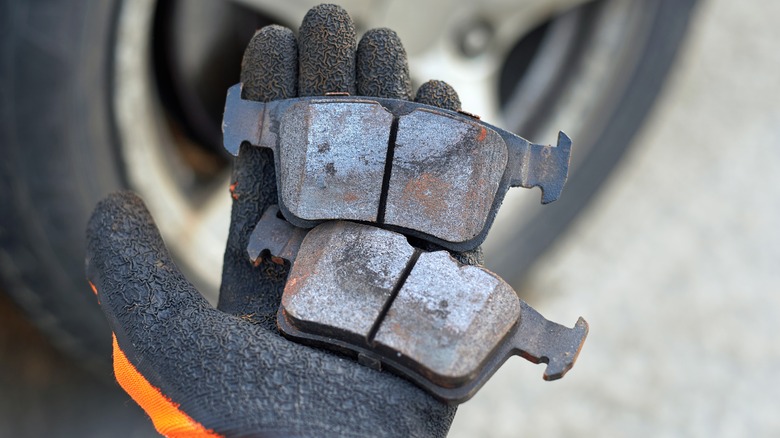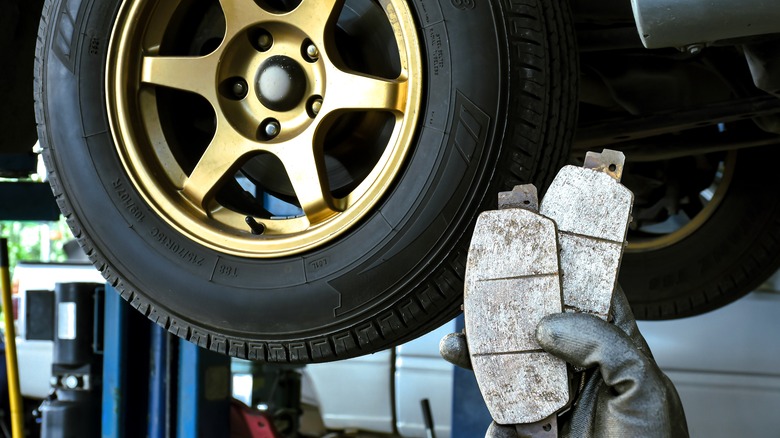Brake Pads Smell Like Fish? This May Be The Reason
Having spent thousands of miles behind the wheel of various vehicles and working around cars professionally for a decade while maintaining my own truck, I've learnt that your nose can be your best tool for alerting you to a problem. Strange smells like an AC letting loose of a vinegar-like scent or an engine producing a sweet aroma can be unpleasant and irritating, but don't ignore them (or worse, mask them with air fresheners). While these signs might not seem as urgent as common dashboard warning lights, they usually call for your immediate attention.
A fishy smell coming from your brake pads, in particular, can raise some concerns. After all, brakes aren't supposed to produce any strange aromas, let alone anything like a day-old tuna sandwich. In most cases, the potential culprit might be new or recently replaced brake pads. The thing is, new brake pads are usually held together with a binding agent that contains formaldehyde resin. This substance requires some time to wear out (a process known as bedding or breaking in), and the process is usually influenced by the driving conditions and the resin's composition. So as it degrades, it starts to off-gas, releasing a nasty smell similar to that of a fish.
Get your brakes checked if the smell persists
A fishy scent from your brakes will likely wear off eventually after the pads cure completely and settle properly with the brake rotors. However, if the smell persists — or if it intensifies — it's best that you have your vehicle looked at immediately. Of course, you can contact your mechanic, but that doesn't mean that there's nothing you can do before that. Usually, you can diagnose brake issues by removing the wheels and paying attention to unusual sounds. You should also double-check the conditions of your brake system and look for worn-out brake pads or sticking brake calipers.
If you check your brake system and it seems like it's in good condition but the smell still persists, check for other warning signs that they need to be replaced. These include softs pedals and reduced braking performance. If possible, check for signs of visible fluid leaks. These symptoms may translate to major, serious issues like a caliper malfunction or brake fluid leak, which can lead to costly repairs.

